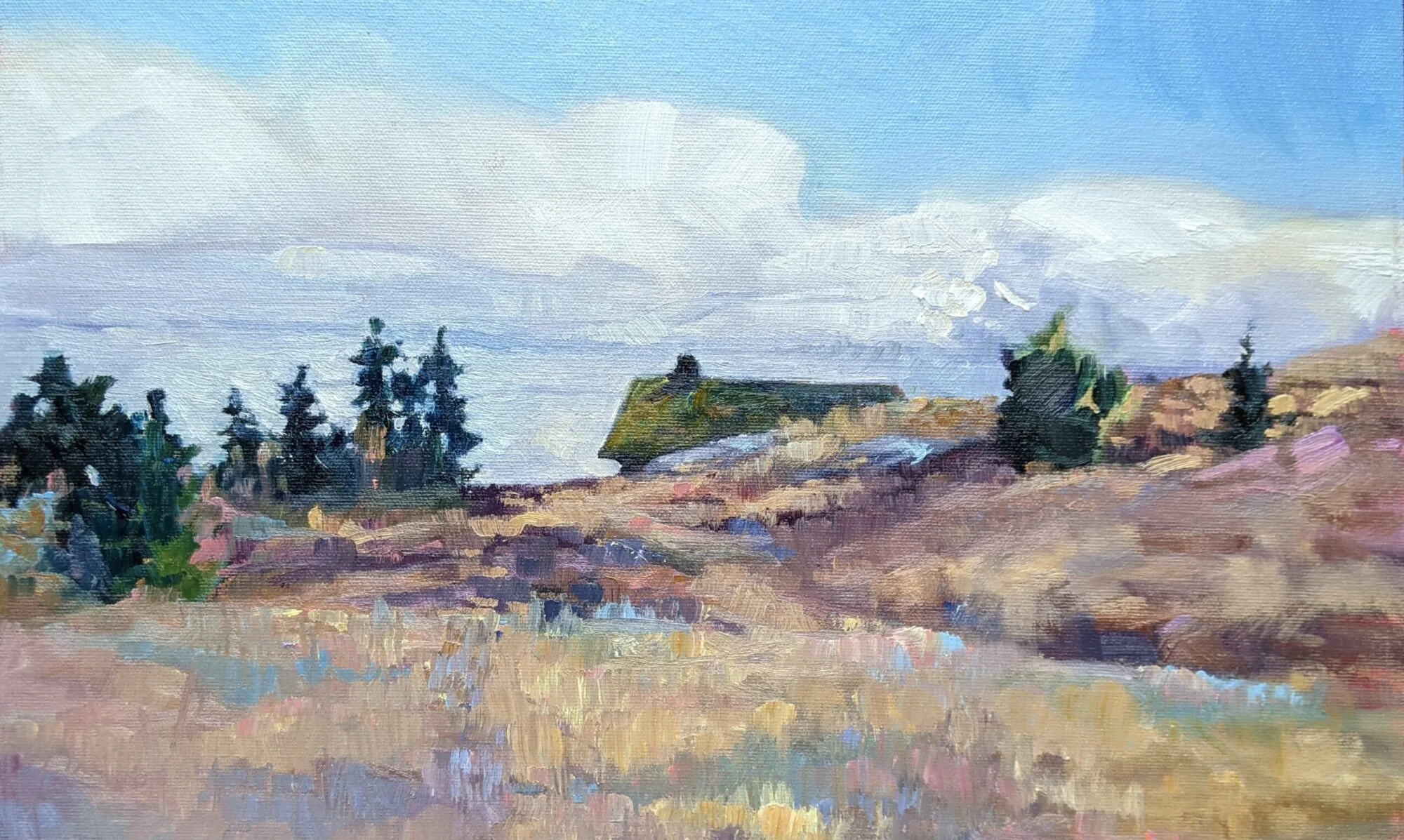
“Ice Cream Parlor,” 12X16, is one of three pieces sold at last night’s show. The remaining four are on display at Jakeman Hall for the rest of the summer.
A very nice Canadian lady contacted me about buying my painting of Ocean Park’s ice cream parlor. Art in the Park doesn’t permit advance sales. One can, however, leave one’s credit card information with the office and the organizers will make the purchase when the sale opens.
I explained this to her. “But why can’t I buy it directly from you?” she asked. “Why do I have to go through the Ocean Park Association and pay them a commission?”
Ocean Park, I told her, is an historic Chautauqua Assembly. The Ocean Park Association is the group responsible for its preservation, educational and cultural programming. They guard the special charm that makes Ocean Park a place people want to return to, summer after summer.
In addition, we artists couldn’t afford to paint there without the hospitality of residents who open their homes to us. The cost of a weekly rental would undo even the best art sales.
“I had no idea,” she answered.
To me, the work done by the non-profits who run plein air events is obvious: land preservation, historic preservation, arts education, community development, and more. But I work with these groups frequently. For someone who doesn’t, or someone from a country where they are funded in other ways, the importance of their fundraising may not be clear.
It was a sweet last day of painting. Anthony Watkins was so tired he was barely standing. Still, he took time to counsel some young admirers on how to paint on driftwood. “We’ll pay you 25% of our profits if you let us use your paints,” they offered.
He deflected them graciously. “The trouble is,” he said, “these are the wrong kind of paints. You need to go home and see if you can find some house paint.”

Russ Whitten and I painted right up to the bell. Not that we were tired, but he lost his painting and I forgot to photograph mine. (Photo courtesy of Pamela Corcoran)
Russ Whitten sat on a bench painting a delightful nocturne from memory. (Sadly, he managed to lose it between there and the Temple.) A group of developmentally disabled adults surrounded us, enjoying their ice cream under the maples.
The carillon pealed the mighty opening bells exactly at 5. Sales were good, and we finished promptly at 7:30. Some painters headed home to a well-deserved rest. Anthony and I, however, loaded our respective cars and turned north toward Castine Plein Air.
I was approaching Belfast when I realized I hadn’t eaten since morning. After a quick stop, I pulled back on the road. Ahead of me was an old SUV with Maine plates. Despite the late hour, its driver was being annoyingly punctilious about speed limits.
“Maybe I should crawl up his bumper to goose him up,” I thought. As I drew close, the vehicle looked awfully familiar. Was that Anthony’s old truck? I’ll never know for sure, but I followed it almost to Castine. The village slept in the gentle glow of the full moon. My hosts had left the light on for me.
By the time you read this, I’ll be on Castine’s village green, greeting old friends, making new ones, and discussing where we plan to paint. In short, it’s the start of a new event. This is a peculiar life: unpredictable, peripatetic, and often exhausting. Still, it’s a beautiful one, and I wouldn’t change it for the world.



